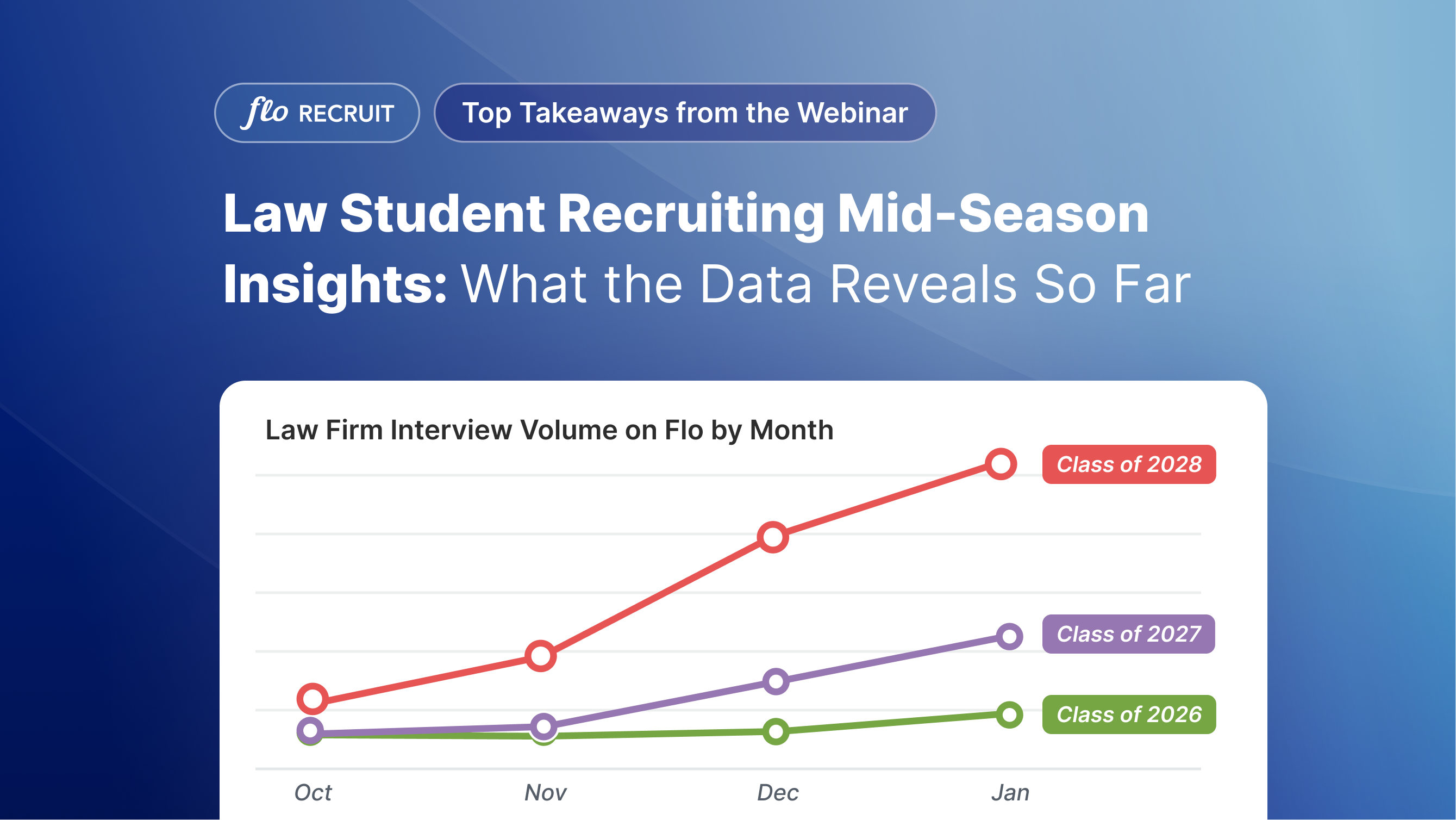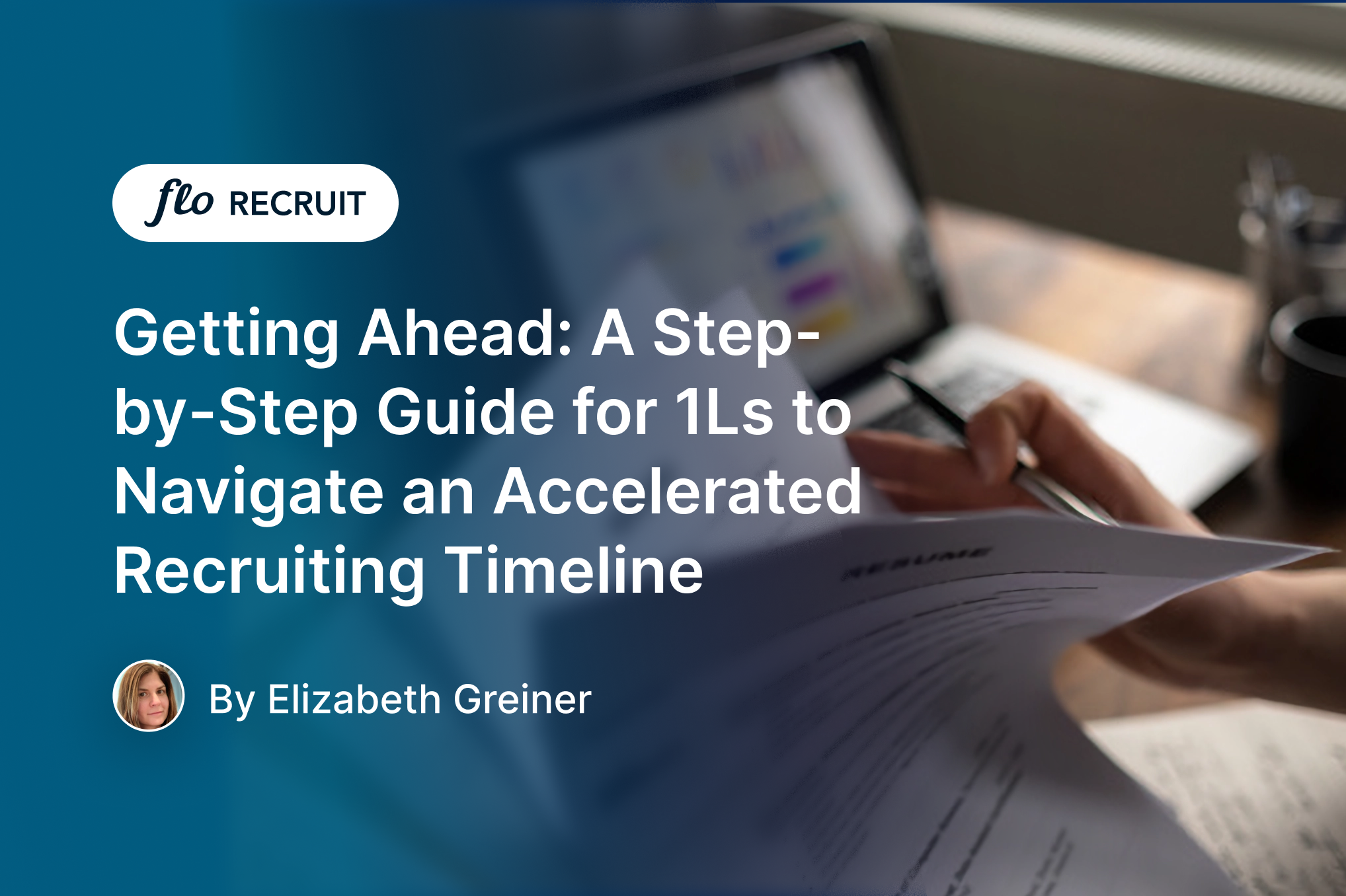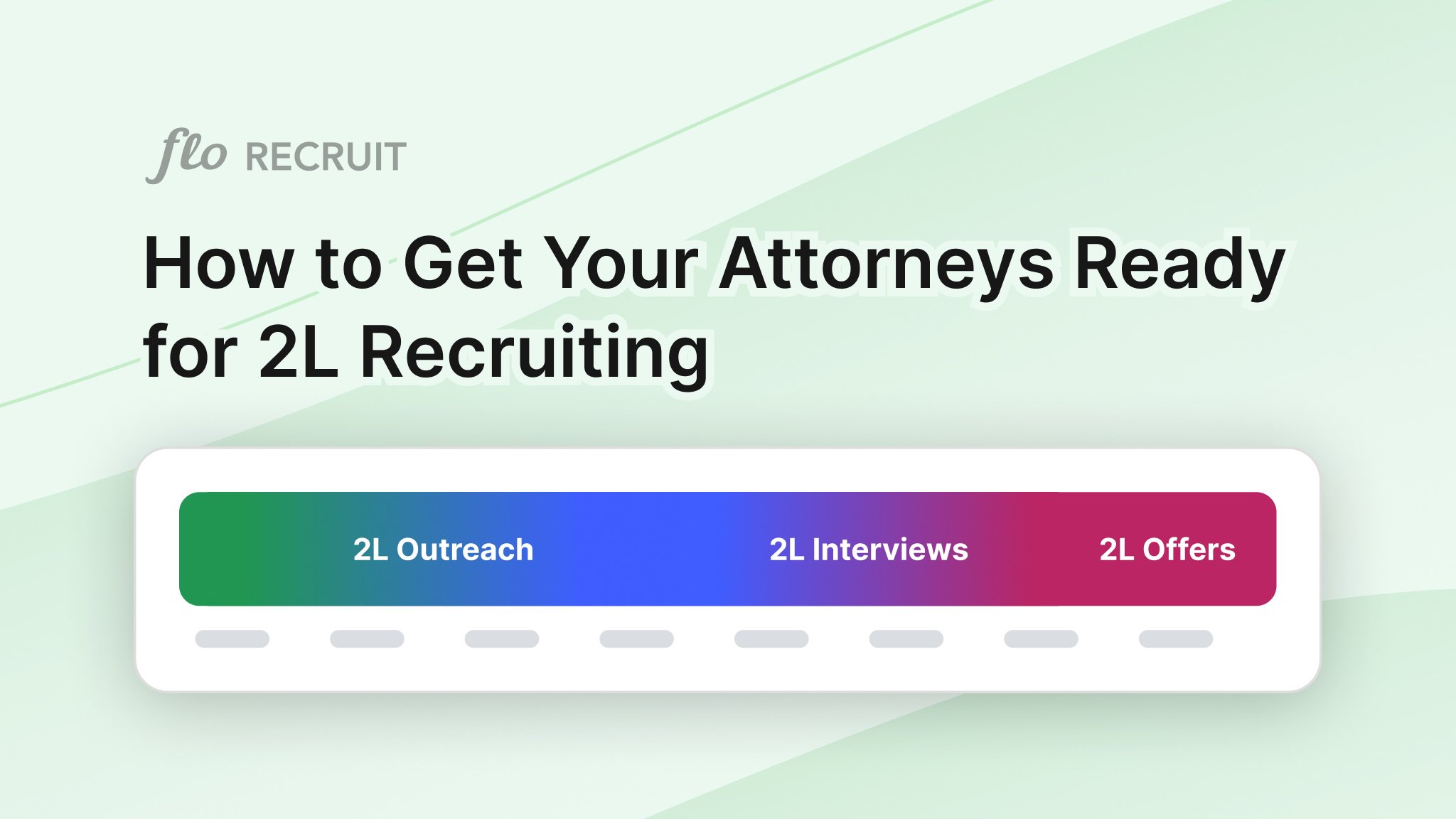Navigating the New Normal: Interviewing for a 2L Job Before Your 1L Summer
As law students move through their journey to becoming an attorney, there are a few milestones that often shape the trajectory of their careers. One of the most significant of these milestones is securing a 2L summer job—a pivotal opportunity for building legal experience, expanding professional networks, and stepping into the next phase of their careers. However, for rising 2Ls, the timeline for securing a summer position is shifting, creating new challenges that law students, firms, and career services offices (CSOs) must contend with. Specifically, many 2Ls are now interviewing for their summer positions before they’ve completed—or in some cases, started—their 1L summer job.
The Changing Timeline for 2L Interviews: What Has Changed?
In years past, law students typically began interviewing for 2L summer positions after completing their 1L summer jobs. By the time these interviews rolled around, students had the benefit of having actual legal experience under their belts, giving them something concrete to talk about during interviews. They could speak to the tasks they had performed, the types of legal work they had been exposed to, and the skills they had honed, not to mention gaining a writing sample and references in most cases.
However, the reality is that rising 2Ls now face a compressed timeline. Interviewing for 2L positions is starting earlier (subscribe to the Flo Recruit 2L Tracker to ensure you don’t miss any deadlines), often in the spring or early summer. While this allows students to secure positions earlier, it also presents challenges. Without the benefit of real-world legal experience, students are left to rely more heavily on their academic achievements, theoretical knowledge, and soft skills.
How Can Students Prepare Without Legal Work Experience?
When law students interview for positions before completing their 1L summer job, they have fewer concrete experiences to draw upon. The interviews are likely to focus on their academic record, extracurricular involvement, and personal motivations. So, how can students successfully navigate these interviews when they haven’t yet worked in a legal setting?
1. Talk to Students Who Have Gone Before You
One of the best ways to prepare for interviews without legal experience is to talk to students ahead of you—specifically those who have gone through 2L interviews. These students have been in your shoes and can offer valuable insights into the process. They can help you anticipate the types of questions you might face, how to approach the interview conversation, and what firms are looking for from candidates. These conversations are also an opportunity to learn how they handled the challenge of discussing their experience when they were in a similar position.
2. Leverage Your Career Services Office (CSO)
Career Services Offices (CSOs) at law schools are a fantastic resource, especially in situations where the timeline for interviews is accelerating. Get in touch with your CSO as early as possible to gather as much information as you can about the interviewing process, including the kinds of questions firms are likely to ask and what skills they value most. The CSO can also connect you with alumni or students ahead of you who can share their interview experiences. Additionally, CSOs often organize networking events and mock interviews—these are invaluable opportunities to practice your responses and build confidence in your interview skills.
3. Attend Networking Events and Mock Interviews
Networking is a critical part of securing a 2L summer position. Because you may not yet have work experience to draw from, building relationships and engaging with potential employers at networking events can give you an edge. Legal Mentor Network is a great resource to connect with a mentor who can answer questions and help guide you through this process. Many firms and organizations host recruitment events, conferences, or social gatherings that provide students with the chance to meet attorneys and gain insight into the firm’s culture. Additionally, mock interviews—whether organized by your CSO or other student organizations—are an excellent way to practice your answers, improve your interview performance, and reduce any anxiety you might feel. You’ll want to make sure you create a profile on Flo Forward, where jobs and events are all posted. It’ll help you keep track of everything all in one place.

4. Be Prepared to Address the Lack of Legal Work Experience
One of the most significant challenges of interviewing before starting a 1L job is addressing the absence of legal experience. Interviewers will likely ask about your background and skills. While this might feel like a disadvantage, it’s important to reframe the conversation to emphasize the skills and experiences you do have, rather than what is missing.
You can theorize how you would approach certain legal tasks or demonstrate your critical thinking skills by discussing class projects, research assignments, or mock trial experiences. Employers understand that you may not yet have practical legal work experience, so it’s crucial to show that you can adapt and apply your academic learning to real-world situations.
5. Highlight Your Interest in the Firm
Another key area of focus for interviews is the candidate’s interest in the firm or organization. Law firms are looking for candidates who are not just qualified but also enthusiastic about their specific practice areas and culture. Even though you may not have firsthand legal experience yet, you can still research the firm’s values, recent cases, and projects. Flo Forward offers in-depth and transparent firm profiles where you can really find out what sets firms apart. Be prepared to articulate why the firm interests you and what sets it apart from other firms. You might highlight specific practice areas, pro bono work, or community involvement that resonates with you. Personalizing your answers will show that you have a genuine interest in the firm, not just in securing any job.

6. It’s Okay to Not Know Everything
One of the most important things to remember is that you don’t have to have all the answers. Interviewers know that you haven’t yet completed your 1L summer job, so they’re not expecting you to have an extensive list of legal accomplishments. If you don’t know the answer to a question, it’s better to be honest and say that you will get back to them after researching it. Just make sure that you follow through and actually do get back to them! Honesty and accountability are often valued more than providing an answer that might be inaccurate or incomplete.
7. Understand that Everyone is in the Same Boat
This is a unique challenge that past classes of rising 2Ls have not faced, and law firms are well aware of the timing shift. Most firms understand that students interviewing before completing their 1L summer jobs don’t yet have practical legal experience. That means everyone is working within the same context. While it’s important to prepare as best as you can, it’s equally important to remember that this is a new situation for everyone involved—students, schools, and firms alike.
Conclusion
Interviewing for a 2L summer position before completing—or even starting—a 1L summer job can feel like a daunting challenge, but it’s one that students can successfully navigate with the right approach. By leveraging the resources available to them—talking to upperclassmen, engaging with the CSO, attending networking events, and preparing for tough questions—students can make a strong impression during interviews. Firms, too, must recognize the unique circumstances this timing shift creates and be understanding of students’ limited legal experience at this stage. Ultimately, this challenge offers an opportunity for students to demonstrate adaptability, enthusiasm, and a willingness to learn—qualities that are highly valued in the legal profession.


